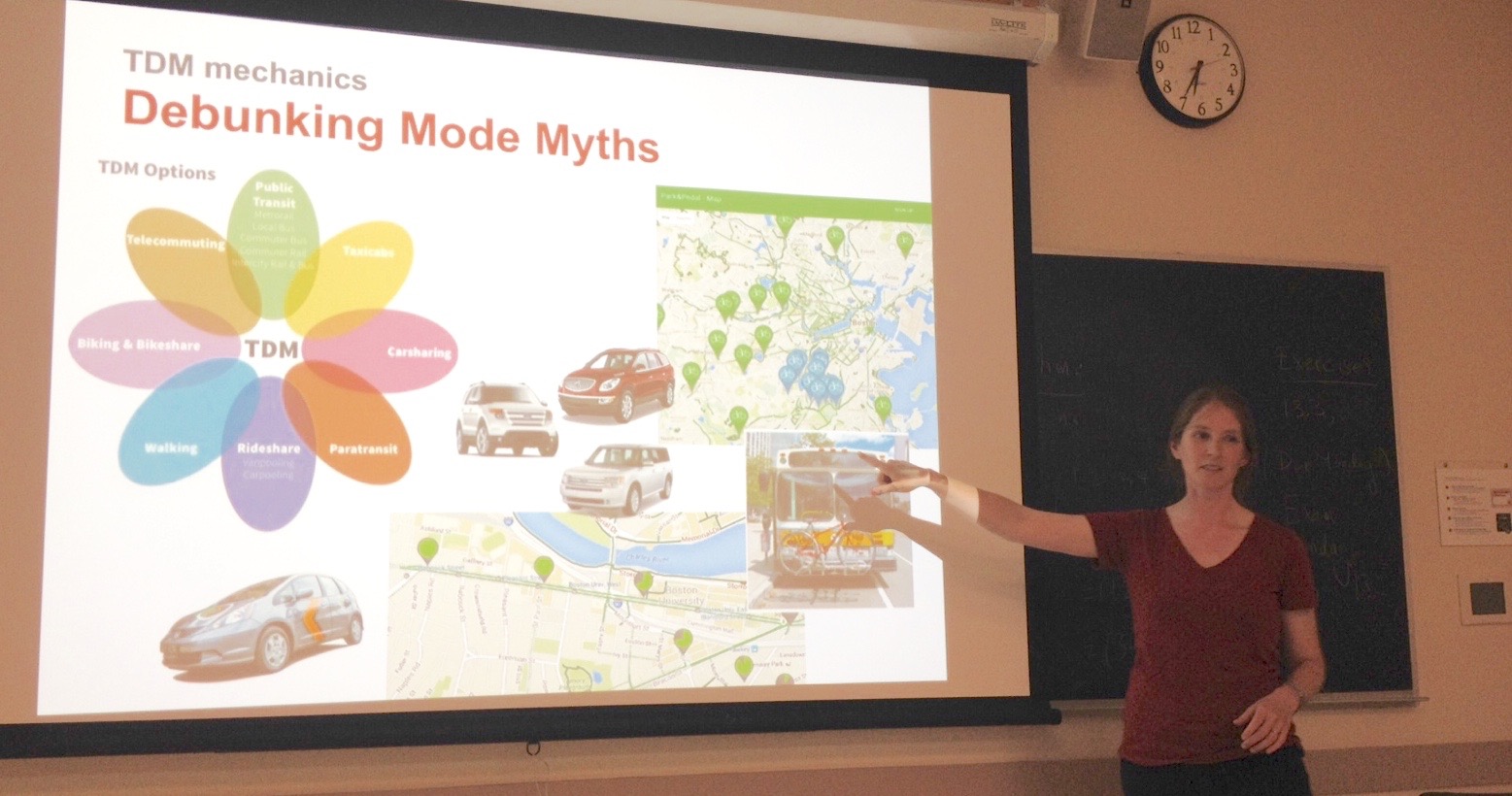BU’s TDM leader shares program and marketing techniques with #BUCPUA students

On June 23, Stacey King, a transportation demand manager at Boston University, visited BU City Planning and Urban Affairs (BUCPUA) students in Doug Johnson’s UA 510 Course, Transit-Oriented Development in the 21st Century. King presented the fundamentals of building and implementing transportation demand management (TDM) programs, including behavior change strategies, incentives, and marketing.

“Hearing from Stacey King was a great way to learn more about how we can apply the lessons we learn in the classroom into real-world practice. I think it’s very important to learn how to negotiate with organizations and institutions that have influence over their employee or members’ mobility behavior. Stacey really outlined for us how we can move forward in nudging people’s transportation choices by disseminating the right information and making it easier to shift from a car to public transit or to biking,” shared Patricia Cahill (MET’18), a candidate in the master of city planning program.
King underscored how TDM aims to help people save time and money when commuting, especially through creative multi-mode transit plans and subsidy opportunities. However, these goals cannot be reached without an aggressive community-based social marketing strategy. King used the transtheoretical model to demonstrate the psychological stages of behavior change. For example, identifying a driver’s stage within this model not only shapes King’s encouragement tactics, but it also helps lower barriers for other transit modes, such as biking, public transit, or rideshare.
“It’s critical that we link commutes to personal happiness. Societal benefits increase when more people have efficient access to jobs and connections to the greater community. Ideal TDM delivers a reduced need to build and maintain infrastructure while simultaneously improving air quality,” King explained.
Throughout her career, King has implemented and managed several TDM programs. As the former CommuteWorks Coordinator at the Medical Academic Scientific Community Organization (MASCO), King steered programs such as the Longwood Area Cycling Summit and CommuteSwap. Here at Boston University, King has been instrumental in developing incentives and subsidies for both employees and students. Commute Better Together and the Hubway Bicycle Share Corporate Membership programs are designed to reward and reinforce sustainable behavior.

“At Boston University, it’s important to break down silos so that different departments can work together to enhance the feasibility of sustainable transportation. For instance, partnerships with BU FitRec, sustainability@BU, and BU Human Resource Health and Wellness can accelerate the integration of TDM programs for employees and students,” shared King.
King received her graduate certificate in environmental management from the University of Maryland University College. She also holds a Bachelor’s Degree in Environmental Management from Southern Cross University.
– Courtney Thraen (MET’17)